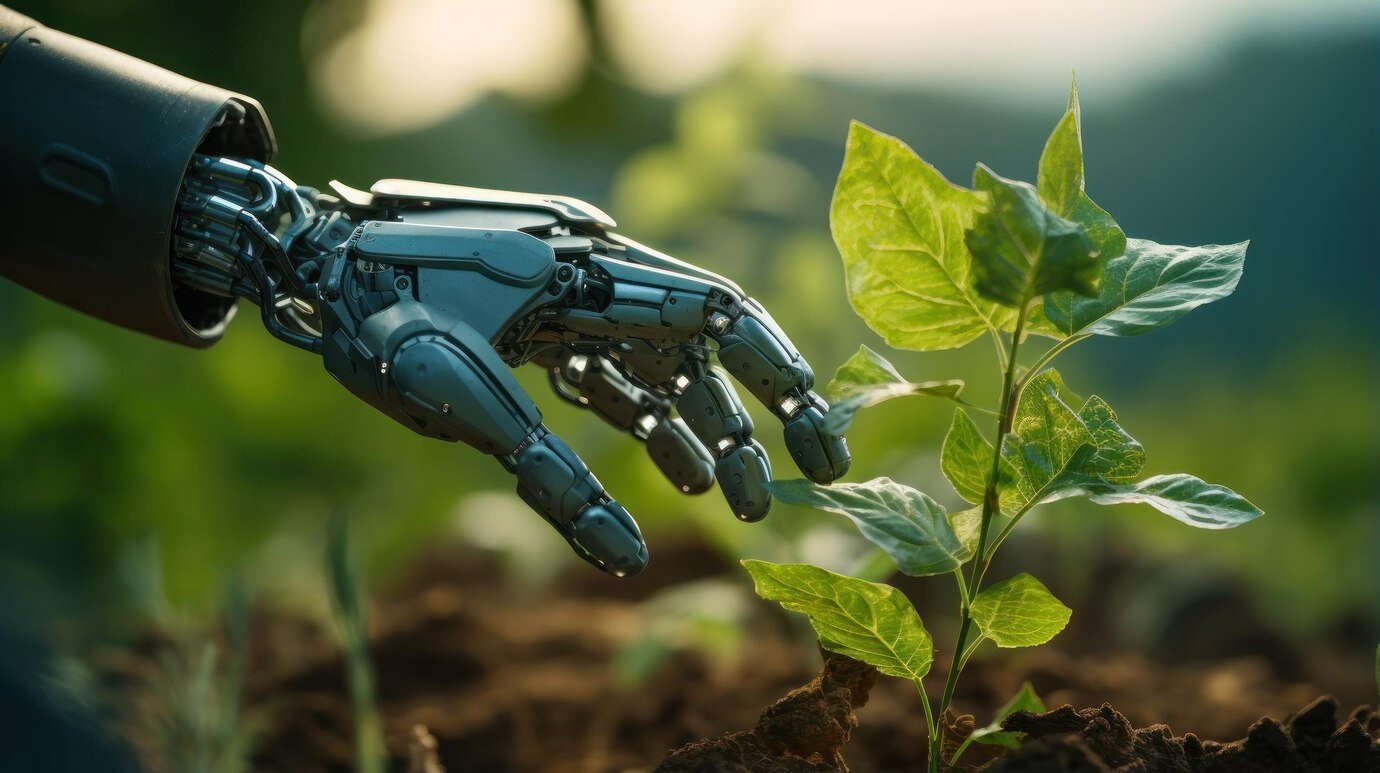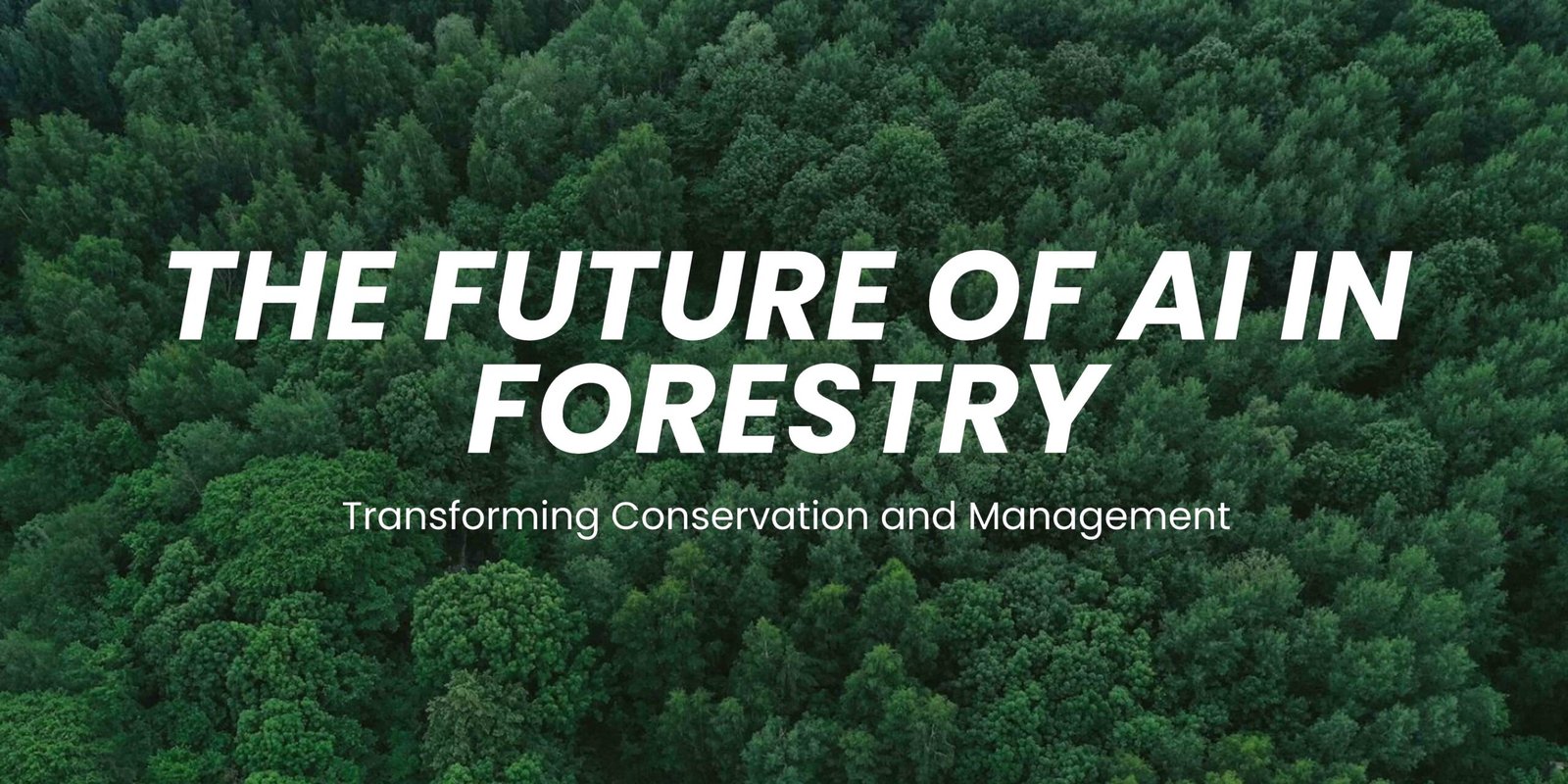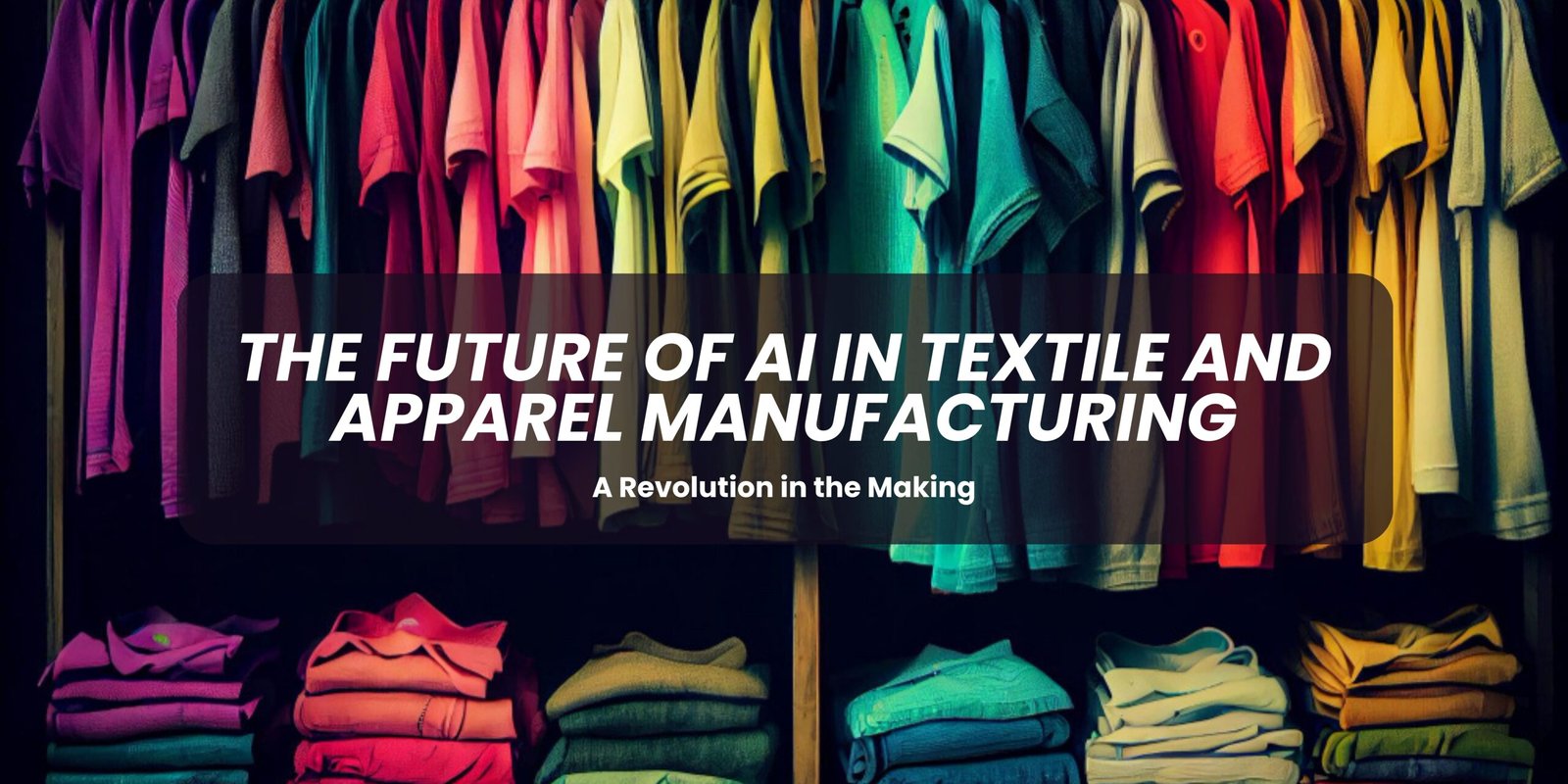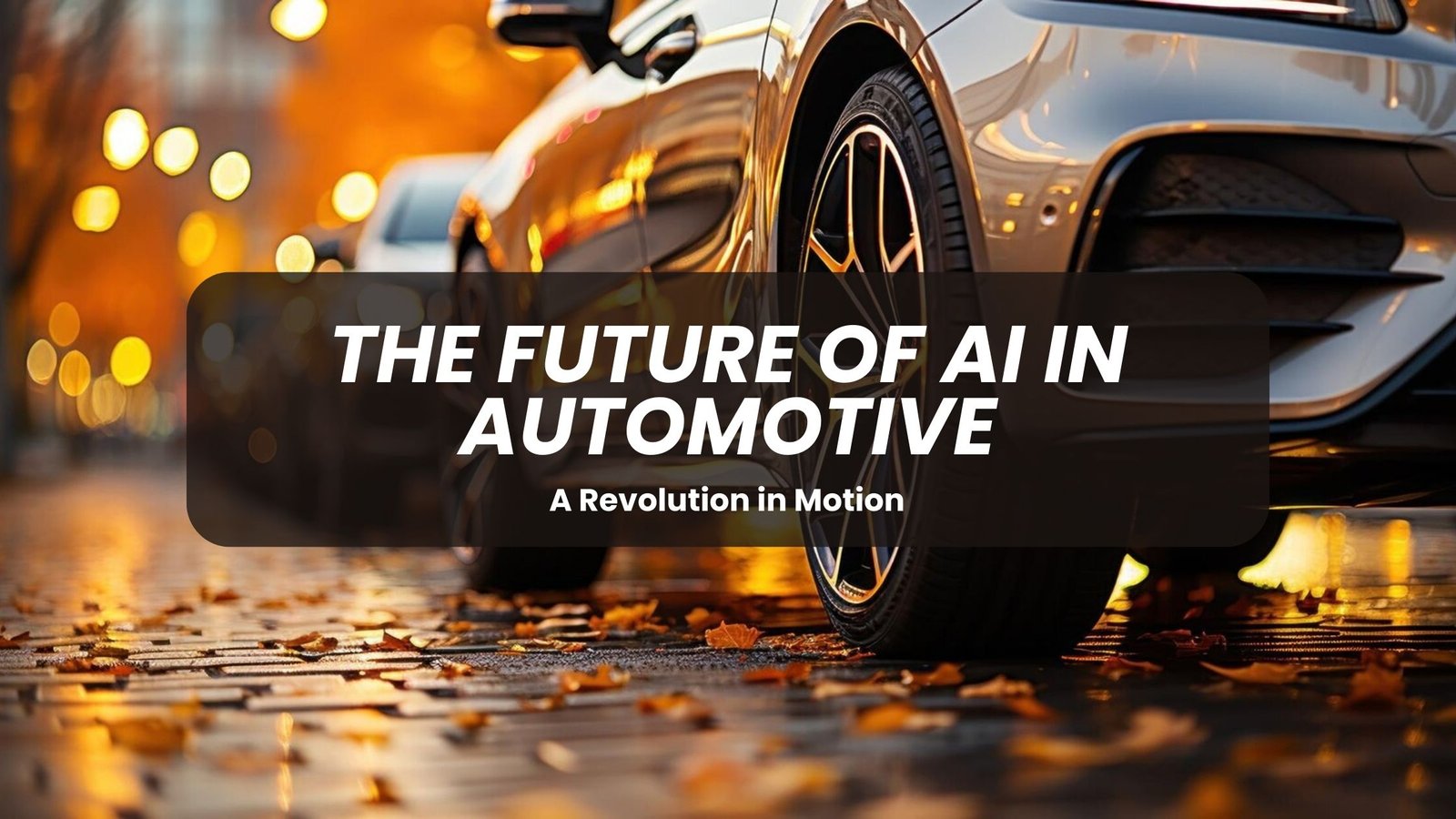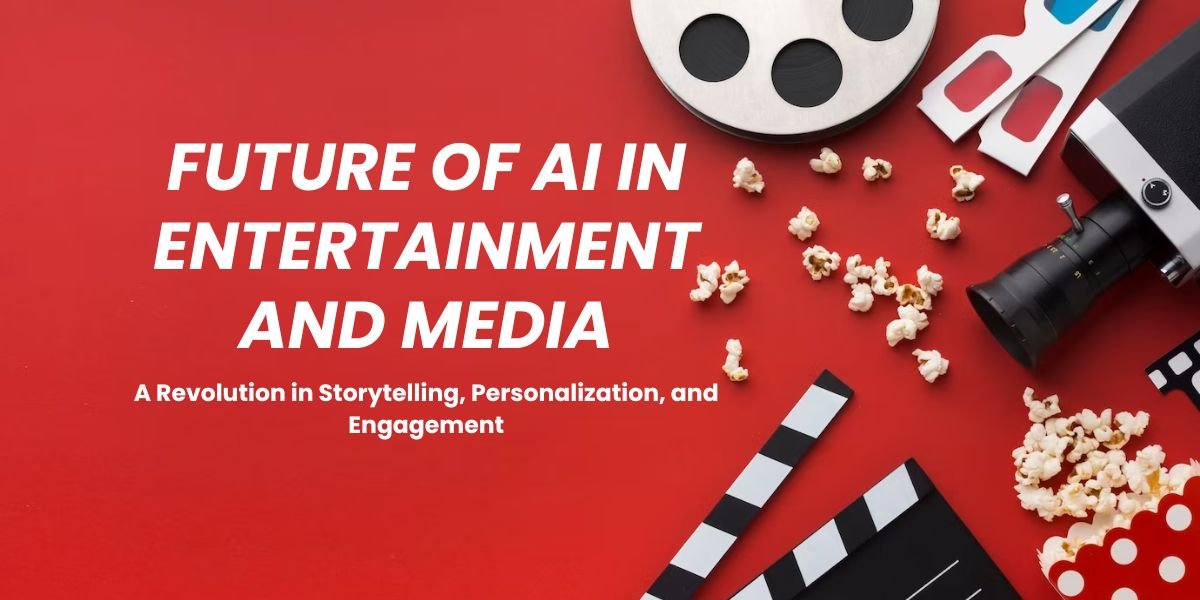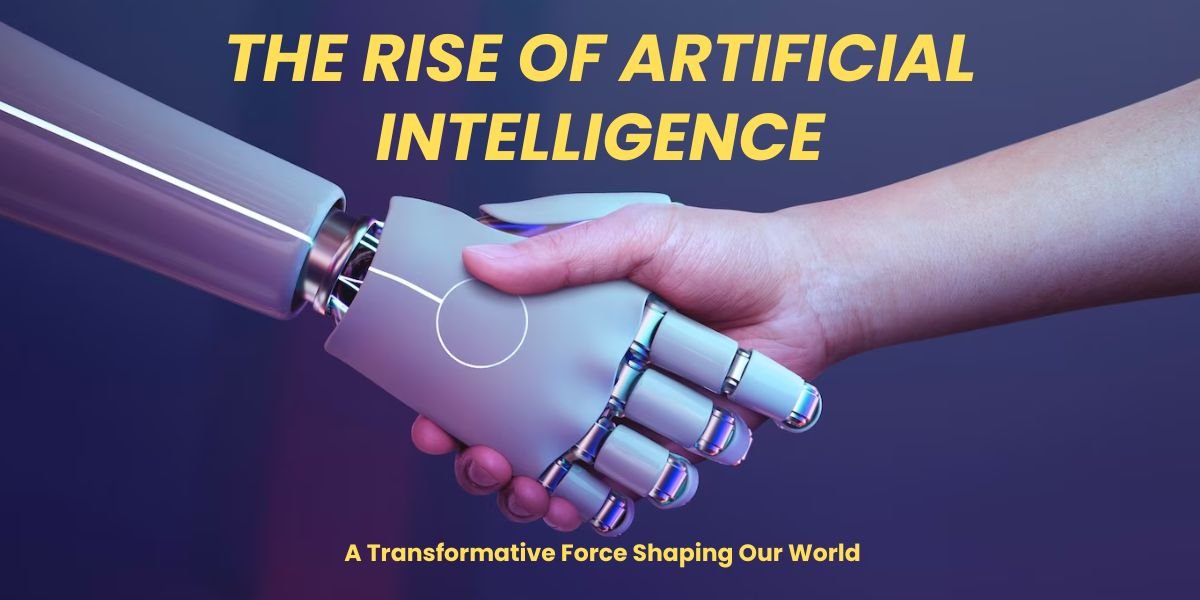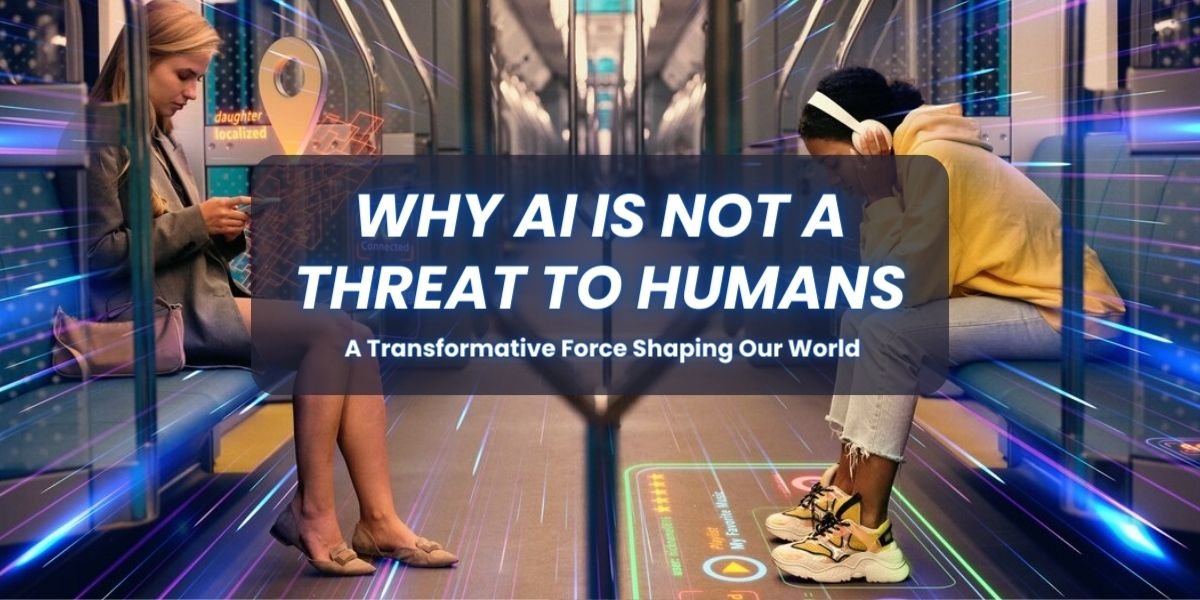What are Some Jobs AI Can't Easily Replace?

Artificial intelligence (AI) is all around us – from the personalized recommendations on our streaming services to the self-checkout lanes at the grocery store. It’s transforming industries at lightning speed, making us wonder: are any jobs safe from the robot revolution? The fear of AI rendering human workers obsolete is understandable. However, while the capabilities of AI are astounding, there are some critical areas where it simply doesn’t cut it. Jobs that demand empathy, creativity, critical thinking, and hands-on adaptability are still undeniably in need of the human touch.
So, what are some jobs AI can’t easily replace? Are there some skills that machines will struggle to match? Let’s dive in and explore the industries and roles where human expertise remains irreplaceable, at least for the foreseeable future.
Let me know if you’d like any other adjustments!
The Need for Empathy and Understanding
In our increasingly tech-driven world, the ability to truly connect with others holds immense value. Jobs that center around human connection require nuanced emotional intelligence that AI struggles to match. Think about therapists, social workers, and counselors. These professionals hold a unique role: they provide safe spaces where people can share their vulnerabilities, untangle difficult emotions, and find pathways to healing. This work relies heavily on building trust, interpreting subtle emotional cues, and offering personalized support that truly understands the individual’s needs. While AI may analyze patterns of behavior and offer basic suggestions, it lacks the capacity for the genuine empathy that’s core to these professions.
Understanding another person’s perspective goes beyond words alone. Counselors and therapists are experts in reading body language, tone of voice, and the unspoken messages hidden beneath the surface. They build rapport, creating an atmosphere where individuals feel truly heard and understood. When facing life’s challenges, sometimes we need more than just a solution – we need compassion and connection. So, when we ask, “What are some jobs AI can’t easily replace?” those deeply rooted in empathy are easily at the top of the list.
This isn’t to diminish AI’s potential in mental health support; it has valid applications. But true healing often hinges on a human-to-human connection that technology alone can’t replicate. Empathy is the ability to walk beside someone in their pain, not just point them towards a solution, and that’s something that makes these professions uniquely resistant to AI replacement.
The Power of Creative Expression
While AI can generate art, and music, and even write basic text, original and impactful creativity still comes from the human mind. Musicians, artists, writers, performers, and even creative directors infuse their work with personal experiences, emotions, and unique interpretations of the world. These elements create work that resonates with audiences on a deeper level, something AI-generated content struggles to achieve. It’s the human ability to draw connections, find meaning, and weave stories that set our creative works apart. AI might mimic form, but it can’t replicate the soul.
Think of a musician pouring their heart into a song, expressing a range of emotions that listeners relate to. Can AI easily replace that raw power of connection? Or imagine a painter whose brushstrokes convey a certain mood or evoke a feeling that a computer program can’t quite imitate. Writers find word combinations that resonate with readers, shaping language in ways algorithms can’t. Performers embody characters, bringing nuances to their roles that transcend simple AI-driven actions.
Creativity is also about pushing boundaries and exploring new territory. AI often draws upon existing data sets, but true artistic innovation comes from asking unexpected questions and venturing beyond the known. The human imagination remains a source of boundless potential, and that’s what makes our creative expressions stand out in a world increasingly influenced by AI. When it comes to jobs in these creative fields, it raises the question: “What are some jobs AI can’t easily replace?” The answer lies in the uniquely human element of expression and storytelling.
Adaptability and Problem-solving in the Real World
The controlled environment of a laboratory or a computer simulation is a far cry from the often messy and unpredictable nature of the real world. That’s where humans excel. Skilled tradespeople like plumbers, electricians, and mechanics face unique challenges every day. A leaky pipe might be hidden in a tight space, wiring systems defy standard color codes, and engines malfunction in unexpected ways. They need dexterity, a knack for three-dimensional thinking, and the ability to adapt their plans on the fly. AI might assist with diagnostics, but the hands-on troubleshooting and creative fixes require a human touch.
Similarly, surgeons must be ready to make split-second decisions based on what they find during an operation. Complications arise that no textbook or AI algorithm could have predicted. The surgeon’s skill, adaptability, and ability to operate under pressure are irreplaceable.
Beyond these technical examples, think of professions like emergency responders, teachers, or even parents. Fires, natural disasters, classroom disruptions, or a child’s sudden illness – these unpredictable situations demand quick thinking, flexibility, and resourcefulness. While AI may play a supporting role in risk assessment or resource gathering, real-time response and nuanced adaptation are distinctly human strengths.
So, the next time you hear about AI taking over jobs, remember this: The real world is messy, situations evolve rapidly, and problems don’t always have cookie-cutter solutions. This is the realm where human adaptability and problem-solving skills – skills that AI struggles to match – truly shine. What are some jobs AI can’t easily replace? Those that require on-the-ground adaptability and the ability to think outside the box, that’s for sure!
Complex, Nuanced Communication
While AI-powered chatbots might handle routine customer service inquiries, they often stumble when conversations become complex or emotionally charged. Consider the world of a lawyer, where success hinges on their ability to dissect intricate legal arguments, persuade a jury with both logic and emotion or negotiate nuanced settlements. Teachers don’t simply impart knowledge – they tailor their communication styles to individual students’ needs, gauging understanding, motivating, and inspiring along the way. Politicians and diplomats need rhetorical skills, charisma, and the capacity to read between the lines to navigate international relations and build alliances.
These are just a few examples of situations where the ability to understand context, interpret subtext, employ persuasive language, and manage emotions are critical. Can AI truly replicate these skills? While it might analyze large amounts of text-based data and even generate human-like sentences, AI currently lacks the depth of understanding and social awareness necessary for truly nuanced communication.
Jobs focused on complex communication often involve high-stakes situations, whether it’s a legal battle, a tense negotiation, or handling a sensitive customer issue. In these moments, the human ability to build trust, employ the right tone, and understand what’s not being explicitly said is irreplaceable. So, when asking the question “What are some jobs that AI can’t easily replace?”, those dependent on mastering complex, nuanced communication are a strong contender.
Critical Thinking in Uncharted Territory
While AI tools are increasingly impressive, they operate within the boundaries of existing data and programming. True innovation often involves charting new paths, asking questions no one has thought of yet, and venturing into areas where no pre-defined rules exist. This is where human critical thinking shines, pushing the frontiers of knowledge in unpredictable ways.
Scientists, researchers, and engineers often tackle questions with no easy answers. They may explore the fundamental building blocks of the universe, seek solutions for complex diseases, or dream up technologies that reshape our world. While AI can certainly assist in gathering and analyzing data, the spark of a novel hypothesis, the daring design of an out-of-the-box experiment, or the intuitive leap to a groundbreaking theory remains a uniquely human ability.
This critical thinking isn’t limited to those with PhDs. Consider the entrepreneur who spots an unmet need and develops a business no one envisioned before, or the artist who pioneers a new medium that changes how we see the world. These acts of bold originality defy easy categorization by AI, demonstrating that the human imagination can still venture where machines cannot follow.
So, if you’re asking yourself, “What are some jobs AI can’t easily replace?”, those involved in pushing boundaries and making groundbreaking discoveries remain safely in the realm of human ingenuity.
The Unpredictability of Human Behavior
We humans are a complex bunch. We can be logical and analytical one moment, and then driven by emotions and impulses the next. This inherent inconsistency is what makes jobs centered around understanding human behavior so challenging for AI to master. Customer service representatives, HR specialists, and even comedians must navigate the intricacies of human interaction, diffusing tensions with empathy or landing the perfect punchline by reading an audience, all in real-time. AI can certainly analyze patterns and predict general trends, but it struggles to keep up with the constantly shifting landscape of how a single individual or crowd might act or react unexpectedly.
Let’s consider sales, for example. A skilled salesperson can quickly adapt their pitch based on a customer’s body language, subtle remarks, and even the nuances of their tone of voice. These cues form the basis for establishing rapport and ultimately closing the deal – areas where AI can’t easily replace human instinct.
The same principles apply across a range of professions. Teachers tailor their approach throughout a single lesson as they sense students’ confusion or engagement. Politicians and negotiators use a well-timed joke or calculated pause to influence the energy of a room. While AI is getting better at mimicking emotions and conversational patterns, it can’t yet match that real-time, in-the-moment adaptability that humans bring to unpredictable interactions. So when you’re wondering “What are some jobs AI can’t easily replace?”, look for roles where reading and responding to the full spectrum of human behavior is essential.

The Importance of Strategic Thinking
Leadership roles, from CEOs to project managers, demand strategic vision and the ability to see the bigger picture. AI can process huge amounts of data, offering valuable insights and predictions. However, making informed decisions that shape the direction of an organization often involves much more than data alone. True strategic thinking incorporates intuition, an in-depth understanding of human motivations, and the willingness to take calculated risks. It means envisioning a future state, navigating ambiguity, and aligning resources to achieve long-term goals.
Consider the difference between a chess computer and a grandmaster. The computer can analyze millions of possible moves and outcomes, but the grandmaster thinks strategically, considering not just the immediate board state but their opponent’s psychology and overarching patterns of play. Likewise, business leaders must see beyond the data, anticipating market shifts, interpreting competitor moves, and inspiring their teams.
So, while AI is a powerful tool, the jobs in which strategic thinking is crucial raise the question: “What are some jobs AI can’t easily replace?”. Machines excel with data, but humans excel in using that data to chart a course, build relationships, and decisively guide teams through the uncertainties of a competitive landscape. True leaders can understand the limitations and biases within AI outputs, using it as a tool rather than a replacement for their judgment.
The AI Paradox: Jobs of the Future
Interestingly, the widespread adoption of AI will undoubtedly create a whole new range of jobs that AI itself can’t easily replace. It’s a fascinating paradox! Let’s look at a few key examples:
AI Developers and Programmers: As AI becomes more complex, we’ll need skilled developers who build, refine, and maintain these systems. This involves not just coding expertise, but the ability to think logically, understand how algorithms work, and troubleshoot unexpected outcomes.
AI Ethicists: Responsible and fair use of AI is vital. Ethicists will play a crucial role in examining potential biases in AI systems, ensuring they don’t perpetuate discrimination, and setting guidelines to safeguard privacy and transparency.
AI Trainers and Explainers: Even the most sophisticated AI system needs human input and refinement. Trainers help bridge the gap, teaching AI to interpret data correctly and improve its responses. Explainers make sure that users can understand how AI systems reach decisions, which is important for building trust and accountability.
Augmented Reality (AR) and Virtual Reality (VR) Specialists: AI will drive advancements in immersive technologies. Designers, developers, and engineers who create AR/VR experiences for everything from job training simulations to interactive entertainment will be in high demand
Data Analysts with Human Insight: While AI excels at processing massive amounts of information, turning that data into actionable strategies still requires human judgment. Analysts who can spot trends, contextualize findings, and communicate insights effectively to stakeholders become even more valuable in a data-driven, AI-powered world.
So, the next time someone asks, “What are some jobs AI can’t easily replace?”, don’t just think about existing roles. Remember that the rise of AI simultaneously opens doors to exciting new career paths built on collaboration and creativity alongside our technological counterparts.
Is Your Job Future-Proof?
While AI continues to reshape the workplace, it’s important to be proactive in future-proofing your career. So instead of asking yourself “What are some jobs AI can’t easily replace?”, focus on developing the skills that will keep you both valuable and irreplaceable in the evolving job market. Here’s how:
- Embrace the Human Advantage: Focus on honing the skills that AI can’t easily replicate. Double down on your capacity for empathy, critical thinking, creative expression, and intuitive problem-solving. These abilities will position you for success in the fields where humans will continue to excel.
- Become a Lifelong Learner: Technology evolves rapidly, so be committed to continuous learning. Embrace new skillsets, take online courses, and attend workshops. Developing adaptability and a hunger for knowledge will make you indispensable, regardless of the technological landscape.
- Think Collaboration, Not Competition: See AI as a powerful tool rather than a threat. Learn to work effectively with AI systems, understanding their strengths and limitations. Those who can bridge the gap between human intelligence and AI capabilities will be highly sought after.
- Specialize within Your Field: While developing broad skills is valuable, becoming an expert in a specific niche can increase your worth. Specializing in areas where AI is less advanced can make you a vital resource.
- Don’t Neglect Soft Skills: Communication, teamwork, emotional intelligence – these “soft skills” are often what sets exceptional employees apart, regardless of technical advances. Prioritize developing these skills alongside any new technical expertise you acquire.
By cultivating these traits and keeping a finger on the pulse of emerging technologies, you can forge a career path that’s not only future-proof but also personally fulfilling.
F&Qs
Answer: It depends on your job’s specific duties. Jobs that are heavily routine, predictable, or data-focused have a higher potential for automation. However, jobs requiring the uniquely human skills we discussed – empathy, creativity, adaptability, critical thinking – are less likely to be fully replaced by AI.
Answer: AI can be creative in generating artforms and content, but it currently draws inspiration from existing data. True originality, the spark of a completely new idea, still seems to reside in the human mind. AI can be an incredible tool for creators, but it’s unlikely to replace them entirely.
Answer: While AI can mimic emotional expressions and responses, true empathy comes from understanding and sharing the depth of another person’s emotions. This involves self-awareness, past experiences, and the ability to build trust – concepts that are difficult for AI to fully grasp.
Answer: The more immediate concern isn’t a Terminator scenario, but how AI will change jobs and society as a whole. Focusing on developing your ‘human edge’ skills and staying open to learning about emerging AI-related fields will help you adapt in the workplace of the future.
Answer: AI may play a role in lower-stakes mental health support, but complex issues and deep emotional needs are best addressed with the understanding and responsiveness of a human therapist.
Answer: AI is getting better at understanding literal language but still struggles with sarcasm, subtext, and reading the nuances of a negotiation. High-stakes communication often demands the kind of contextual awareness and social intelligence that humans still excel at.
Answer: For now, yes! Skilled trades involving physical tasks, problem-solving in unpredictable environments, and precise dexterity aren’t easily replaced by current AI capabilities.
Answer: Cultivate your most human skills: empathy, critical thinking, communication, collaboration, and adaptability. Stay open to learning about how AI tools can enhance your work. It’s the combination of human strengths with AI capability that will create the most value in the future.
If you appreciate this information, please share it.





